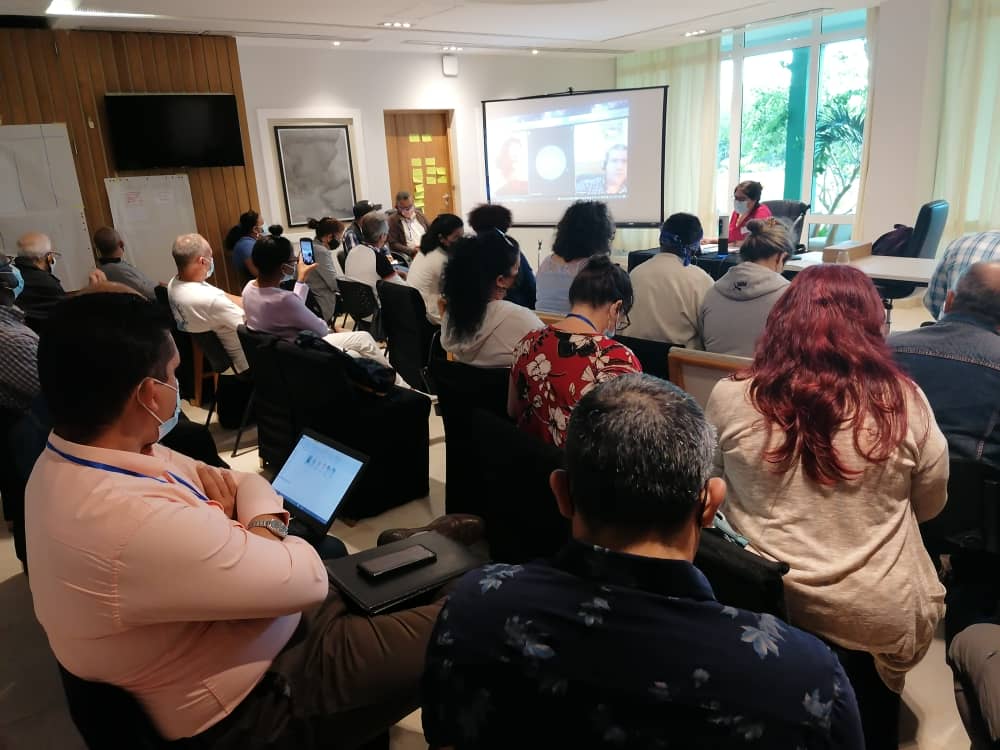
The metabolomic, metagenomic and proteomic characterization of beneficial autochthonous microorganisms (MAB) constitutes one of the lines of research that the FSPI Agrecocaribe Project will assume in Cuba in its second stage.
For the essential integration and technological chaining between the scientific institutions and the universities that make up the project, the priority crops to work on are still decided, including the pig as an animal species.
Virtually, experts from the International Center for Agricultural Research for Development in France (CIRAD) Doctors Beatrice Rhino, Komi Assigbetse and Paulo Salgado joined the analysis.
The molecular characterization of MABs includes the study of metabolites in their relationship with the defensive response of crops to different types of pests.
For example, research by the National Center for Agricultural Health in Cuba (CENSA) shows that the use of MAB in tomato cultivation reduces the incidence of nematodes.
Delving into this type of molecular studies generates new knowledge, while at the same time involving the triangulation of the scientific literature, which is why the creation and exchange with a reservoir, niche or analytical platform from bioinformatics is imposed.
At the same time, a financial commission of the Franco-Cuban FSPI Agrecocaribe Project is also in session, which for four more years will contribute to the promotion and development of agro-ecology in the agricultural sector on the island.
